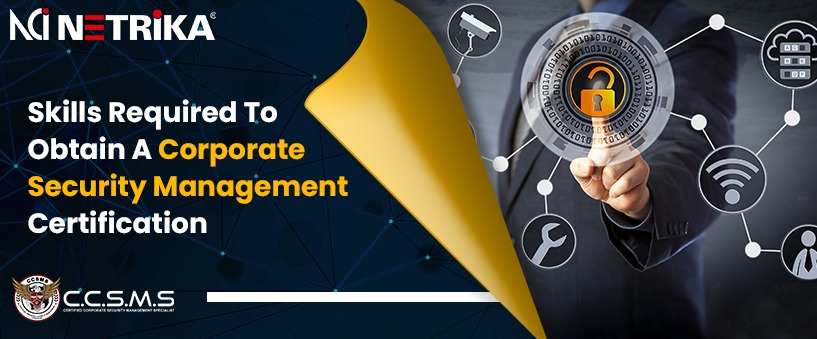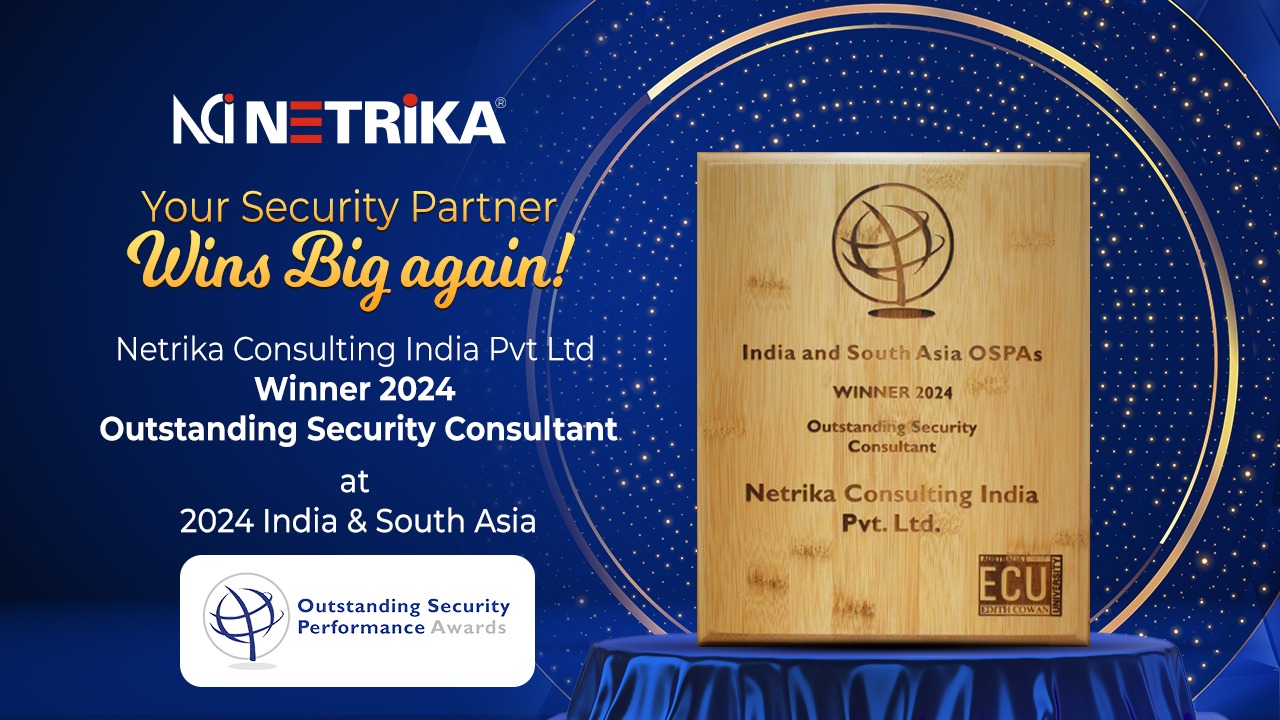News & Events
Skills required to obtain a corporate security management certification
- June 27, 2023
- Posted by: marketing@netrika.com
- Category: Blogs

Corporate security is capable of effectively identifying, mitigating or managing any developments that have the potential to harm a corporation’s continued survival and resilience. It is a corporate role capable of directing and managing the close coordination of functions inside a corporation primarily concerned with safety, security, and continuity. This duty also includes the deployment of security measures to ensure the safety of physical goods, networks, and company-owned ideas. It is extremely important in financial investment because it effectively protects investors.
Given the critical importance of protecting an organisation’s assets and elements from threats, vulnerabilities, and hazards, it is logical to assume that enrolling in a corporate security management certification course can help a wide range of employees and professionals. Individuals and professionals responsible for securing all important parts of an organisation, such as corporate security managers, chief security officers, security solutions heads, global risk analysts, and safety advisers, would benefit the most from the certification course. However, a professional must have or acquire a set of skills that are required to gain security management certification.
Skills required to obtain a corporate security management certification
⮚ Security examination
Security analysis is a comprehensive set of abilities that includes understanding both security and the specific business with its unique difficulties. You’ll need to know how to use security tools strategically to monitor multiple systems and circumstances, detect weaknesses, and offer strategies to reduce attack surfaces as part of this skill set.
⮚ Testing for penetration
As physical and cyber hackers exploit weaknesses to access networks and systems, and data breaches continue to set new records, intrusion detection has emerged as a critical area of attention for businesses. Penetration testers, or ethical hackers, are increasingly being hired by organisations to identify weaknesses and explore their information systems for exploits that attackers may discover. While penetration testing is a distinct field, many other vocations (such as security analysts and information security engineers) frequently require intrusion detection and penetration testing abilities.
⮚ Data Analysis
We live in the age of ubiquitous data collection, but data on its own is meaningless. A specialist analysis is required to develop conclusions and take relevant actions to enhance outcomes. In the security industry, completing extensive data analysis using the information available to you will help safeguard a business from a variety of risks that may hurt employees, destroy brand reputations, or even result in cash loss. Threat analysis is a special emphasis on security data analysis. Its goal is to limit the risks of security breaches and neutralise threats before they are exploited. You must be comfortable dealing with huge datasets, querying data, and developing user-friendly dashboards. This also includes rigorous data analysis and extracting relevant inferences from the data using your own experience, assisting your company in making data-driven decisions.
⮚ Incident Response
Any certified security management professional must be able to react quickly and responsibly in the case of a security breach. Whether you are dealing with a physical security incident like trespassing or theft or a security crisis like a data breach or malware attack, professionalism and training are essential for a successful response. Physical security events can easily escalate into violent or dangerous circumstances, resulting in injury; thus, prompt and skilled responses can save a lot of lives.
⮚ Teamwork
The IT team does not work in isolation in an organisation that supports a security-focused culture. To fix security issues, you may need to collaborate with either your IT counterparts or coworkers from other departments. To have a successful career in this business, you must be able to cooperate, collaborate and work with others.
⮚ Customer Service
Because information security professionals are problem solvers, they should expect to communicate with those whose problems they are attempting to solve. Customers might be internal, such as department heads, or external, such as clients that the company serves as a vendor. Distinguishing tension among stakeholders and working under high pressure will be part of the job in high-stakes circumstances, such as a security crisis. It is beneficial to put yourself in your customer’s shoes and comprehend their pain points.
⮚ Communication Skills
Communication, like customer service, is a universal talent that is required in almost every career. Top communication skills are required for a security professional in various settings, such as implementing a new security product, debugging issues, or attempting to educate other employees about good cyber hygiene.
Netrika Consulting is a leading provider of CCSMS for professionals
With its profound understanding of security trends and skilled, certified forces to offer training in the subject, Netrika offers the Certificate in Corporate Security Management Studies (CCSMS) certification to aspiring specialists. We are a global leader in specialised and expert-driven training courses in various areas of specialisation, with extensive industry exposure.
Our security professional certification course enables participants to obtain professional awareness and reputation while improving their marketability and job security globally. Netrika’s instructor-led CCSMS training course empowers and raises knowledge of the developing risk landscape, assisting in professional progress while focusing on imminent security concerns.

